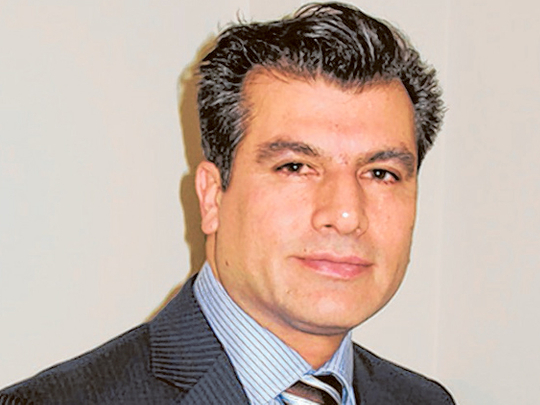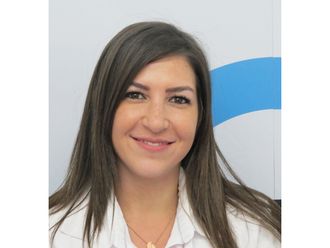
Dubai: Dr Allen Rezai, Consultant Cosmetic, Reconstructive and Aesthetic Surgeon, Elite Comsetic Surgery Group, Dubai, ansers some Frequently Asked Questions (FAQs).
Why is cosmetic surgery becoming so popular?
In the present times, sensitivity about appearance is a world-wide phenomenon. People read about their favourite movie stars and celebrities undergo cosmetic changes and learn about the kind of procedures available on the Internet and social media.
The other factor pushing this trend is that cosmetic surgery is no longer a rich person’s indulgence. Procedures like Botox injections and collagen fillers to ease wrinkle lines are becoming more and more affordable for all. Today, you do not need a high disposable income to undergo many cosmetic procedures.
Going by the top five popular surgeries, it’s evident that people suffer from image issues. Is it ethical to let them go under the knife because they are chasing a phantom view of themselves?
People look into the mirror and see what they really want to see.
I have a very lengthy consultation with my patients wherein I closely question them and look for underlying psychological problems. If I detect them, I direct the patient to a psychologist for counselling.
For instance, a while ago, a middle-aged woman came in seeking breast enlargement. On close questioning, I realised she was experiencing trauma as she had undergone a divorce — her husband had left her for a younger woman. I advised her to undergo counselling and wait for a year before thinking of such a procedure. She complied and returned to me a year on. This time, after a detailed consultation, I was convinced that she wanted this procedure but not because of any trauma. So I agreed.
Post the procedure, she has come out more calm, confident and happy. That one decision has changed her temperament. However, despite counselling, people sometimes will seek out a surgeon who will be unscrupulous enough to help them without a proper evaluation.
When it comes to young people opting for procedures, are cosmetic surgeons trained to look for symptoms of insecurity in them so they can be discouraged from going under the knife for the wrong reasons?
Cosmetic surgeons usually have high standards of ethics and a deep sense of responsibility. The reason why, in most clinics, patients are asked to fill up forms in great detail. They also have to undergo long consultations with their surgeons who assess the situation before carrying out the procedure.
For instance, a young patient came to me with a keloid scar tissue across her abdomen that was caused by a botched-up liposuction in another country. I could have agreed to remove the keloid but that was unnecessary and could have further weakened her abdominal wall. So I counselled her and she finally agreed to use some scar removal creams.
What are the merits and demerits of cosmetic surgery in general?
Cosmetic surgery has the power to help a patient undergo a life-changing experience. More than 80 per cent of the patients who elect to have cosmetic procedures go home highly satisfied, with a heightened sense of self-esteem.
However, in some limited cases, cosmetic surgery can have a devastating effect on the patient. These are cases where a patient has a host of underlying psychological problems which they may not be addressing. In such cases, a surgery causes a change in the patient they are not mentally prepared to face, which can trigger a deeper conflict in their mind. In such cases, we advise them to address the larger issues first before thinking of going under the knife.
Who unconditionally qualifies for these surgeries?
This is a decision to be taken on a case-by-case basis. In case of procedures like a facelift, I absolutely do not accept a patient below 40 years of age. Recently, a woman (approximately 56 years) came in for a facelift. She had very loose skin that was hanging off her jowls, her laugh lines were deep and prominent and she had lost volumes on her cheek. A facelift would help take 10 years off her face. She was a deserving candidate. In such cases, surgery can help. It cannot stop the ageing process but it can imbue it with grace.
What are the chances of things going wrong?
Anything can go wrong. Worldwide, there have been cases of botched liposuction and, in cases of breast enlargement, there have been issues of asymmetry.
How often do patients come for a revision of the same procedure?
Worldwide, the rate of patients coming in for repeat surgeries is very high as some surgeries have a lifespan. For instance, in the case of facelifts, the lifespan is 5-7 years. Maybe 10 years later, the patient might come in for a repeat facelift. In the case of breast enlargement, patients do return for fresh implants.
Worldwide, the rate of revision surgeries is 3-5 per cent. Revision would mean a patient is either not too happy with the end result or wants another shape for, let’s say, a nose bridge. Despite the efficacy and skill of cosmetic surgeons worldwide, the rate of revision surgeries for breast enlargement is 3-5 per cent and nose bridge is 5-10 per cent.
In the West, people can pay for their cosmetic surgery in instalments. Is that a good policy?
We are against any kind of instalment scheme for corrective surgeries. If a person cannot afford a cosmetic procedure, he or she must desist from it. In the West, the instalment scheme is a ploy to attract the poor to the surgeon’s table.











